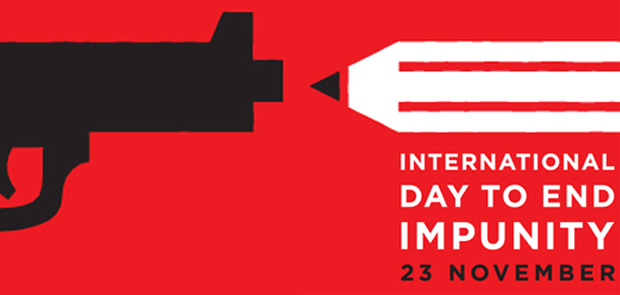27 Nov 2013 | News, United Kingdom

“Michael Gove” (Image Julia Farrington)
It’s 5am on Saturday a crowd of artists, film-makers, musicians and poets are gathered opposite London’s Whitechapel gallery, waiting to board a coach to Scarborough for the Art Party Conference. It is cold and extremely early so my heart is warmed by the lively figure of artist Bobby Baker handing out ‘packed breakfasts’ to all us passengers.
If I was looking forward to tasty home cooking I should have known better, because the breakfasts are a piece of participative conceptual art and the food – a couple of slices of white bread, some currants, marge and sachets of jam, ketchup and vinegar – came with instructions: Use the food to make a portrait of Education Secretary Michael Gove, photograph it, tweet it and then eat it. By eating it you are going some way to understanding what it is like to be Michael Gove and therefore you are that much closer to being able to change him.
The artists are concerned about potential changes to UK education that they see as undermining the arts and free expression in the UK.
Michael Gove’s reforms which downgrade arts education at GSCE are the trigger for the Art Party conference and on the coach on the way up, Bob and Roberta Smith (founder and force behind the whole project) led us in our chant – “Where are we going?” “Scarborough” “What do we want?” “To better advocate the arts to government” was a bit of a mouthful. But that is the heart of artist Bob and Roberta Smith’s argument – how can something that is so vital and fundamental to human existence and has the power to transform, inspire and regenerate be swept aside.
Everything was filmed, the coach trip and the whole day of events, discussions and provocations at the Spa Complex in Scarborough, and the footage will be over-laid by the story of an imaginary figure called “Michael Grove MP” who attends the conference and has a life-changing epiphany about the power and importance of art. It will be released in August next year and will be a central part of The Art Party campaign in the lead up to the 2015 elections.
Like everything in the conference, the film will be a combination of serious message and playfulness; to get to a moving discussion featuring Sam West, Maureen Duffy, Haroon Mirza and Geoff McMillan on “Why is art important”, you passed an Aunt Sally side show where conference delegates were busting porcelain busts of Michael Gove.
Bob and Roberta Smith’s letter to Michael Gove, painted on two pieces of eight by four took centre stage at the Spa ends with a rallying cry. “You will be opposed by all people interested in art, design, free speech, freedom and democracy and probably also by a few bankers and investors interested in British products and exports who are concerned about the colour of their money…Education is about sowing seeds not setting standards for the shape of bananas.”
27 Nov 2013 | News, Politics and Society, United Nations

The UN has officially recognised 2 November as the International Day to End Impunity for crimes against journalists. As reported by Index, a draft resolution calling for this was put to a vote on 26 November. Co-sponsored by 80 organisations across 48 countries, it was passed by the Third Committee, which deals with human rights issues.
Index on Censorship, as part of the IFEX network, has welcomed the decision. Annie Game, IFEX Executive Director, stated: “There has never been a more dangerous time for journalists. They are being killed and imprisoned worldwide in record numbers. They face daily threats, attacks and intimidation from private individuals, non-state actors, and government officials who seek to silence them. The overwhelming majority of these crimes are committed with impunity.”
“We welcome the resolution’s call to proclaim November 2 as the International Day to End Impunity for crimes against journalists. With complete impunity in nine out of 10 cases of journalist murders worldwide, this decision does not come too soon. This is a crucial step toward guaranteeing that individual journalists can continue to work in the public interest without fear of reprisal, and that those who seek to silence them with violence are brought to justice.”
26 Nov 2013 | Campaigns, European Union, United Nations
In a joint letter to Baroness Catherine Ashton, High Representative for Foreign Affairs & Security Policy and Vice-President of the European Commission, Index on Censorship has joined 66 human rights NGOs from European Union member States, States from the European Partnership and States in cooperation with the European Union stress that the intent to reduce OHCHR’s budget is a signal in the wrong direction. The programme budget for the biennium 2014-2015 for 2014-2015 already decreases the budget of OHCHR by a net 4.8%, whilst the promotion and protection of human rights represents only 3% of the overall UN budget.
Keeping in mind that within the overall UN budget, the share allocated to the promotion and protection of human rights represents approximately 3%, the intent to reduce OHCHR’s budget is a signal in the wrong direction. Soon the Human Rights Council will celebrate its 10 years of existence – we believe that all States and group of States aiming at promoting human rights should ambition to raise that share to at least 10% to celebrate the 10 years of existence of the Council, which will be made impossible if the European Union continues to pressure for more and more “across the board” cuts in the UN’s human rights budget.
20 years after the Office was established, does the European Union really want to a force contributing to undermining the sustainability of OHCHR, hence weakening the voice for human rights within the UN system?
Azerbaijan Human Rights House (on behalf of the following NGOs):
Association for Protection of Womens’ Rights
Azerbaijan Lawyers Association
Human Rights Center of Azerbaijan
Institute for Peace and Democracy
Legal Education Society
Women’s Association for Rational Development
Media Rights Institute
Public Union of Democracy and Human Rights Resource Centre
Society for Humanitarian Research
Barys Zvozskau Belarusian Human Rights House in exile, Vilnius
Human Rights House Belgrade (on behalf of the following NGOs):
Belgrade Centre for Human Rights
Lawyers’ Committee for Human Rights
Helsinki Committee for Human Rights in Serbia
Policy Center
Human Rights House Kiev (on behalf of the following NGOs):
Association of Ukrainian Human Rights Monitors on Law Enforcement (Association UMDPL)
Center for Civil Liberties
Human Rights Information Center
Human Rights House Tbilisi (on behalf of the following NGOs):
Article 42 of the Constitution
Caucasian Centre for Human Rights and Conflict Studies
Georgian Centre for Psychosocial and Medical Rehabilitation of Torture Victims
Human Rights Centre
Media Centre
Union Sapari – Family without Violence
Human Rights House Oslo (on behalf of the following NGOs):
Human Rights House Foundation (HRHF)
Health and Human Rights Info
Norwegian Helsinki Committee
Human Rights House Voronezh (on behalf of the following NGOs):
Charitable Foundation
Civic Initiatives Development Centre
Confederation of Free Labor
For Ecological and Social Justice
Free University
Golos
Interregional Trade Union of Literary Men
Lawyers for labor rights
Memorial
Ms. Olga Gnezdilova
Soldiers Mothers of Russia
Voronezh Journalist Club
Voronezh-Chernozemie
Youth Human Rights Movement
Human Rights House Yerevan (on behalf of the following NGOs):
Armenian Helsinki Association
Helsinki Citizens’ Assembly – Vanadzor
Jurists against Torture
Guaranteeing Equal Opportunities
Shahkhatun
Socioscope
Women’s Resource Center
Human Rights House Zagreb (on behalf of the following NGOs):
Association for Promotion of Equal Opportunities for People with Disabilities
B.a.B.e. – Be active, Be emancipated
Centre for Peace Studies
Documenta – Centre for Dealing with the Past
GOLJP – Civic Committee for Human Rights
Svitanje – Association for Protection and Promotion of Mental Health
Russian Research Centre for Human Rights (on behalf of the following NGOs):
Human Rights Network Group
Independent Psychiatric Association of Russia
Moscow Centre for Prison Reform
Moscow Helsinki Group
Mother’s Right Foundation
Non-violence International
Right of the Child
Right to Live and Have Civil Dignity
Social Partnership FoundationUnion of the Committees of Soldiers’ Mothers of Russia
Helsinki Foundation for Human Rights, Poland
Human Rights Club, Azerbaijan
Rafto Foundation, Norway
Human Rights House Foundation (HRHF)
Index on Censorship
26 Nov 2013 | Digital Freedom, European Union
Dutch MEP Marietje Schaake has launched a campaign that aims to stop European businesses selling surveillance equipment to authoritarian regimes.
In an email, Schaake explained:
“It is unacceptable that EU made technologies are still exported, deployed and operated by European companies to third countries without oversight.
Globally, citizen’s digital freedoms are under threat of mass-surveillance, censorship and hacking. So far the EU is unwilling to take action.
In October 2012 the European Parliament adopted legislative amendments that would curb the export of digital arms.
So far the European Commission and Member States are unwilling to meet Parliament’s demand, so we need vocal public support.”
Index shares Schaake’s concerns. Earlier this year, we joined an international coalition calling for an investigation into the use of FinFisher technology in Pakistan.
Before that, Index’s Mike Harris wrote about the topic for the Independent here.
You can find out more about the campaign at www.stopdigitalarms.eu


